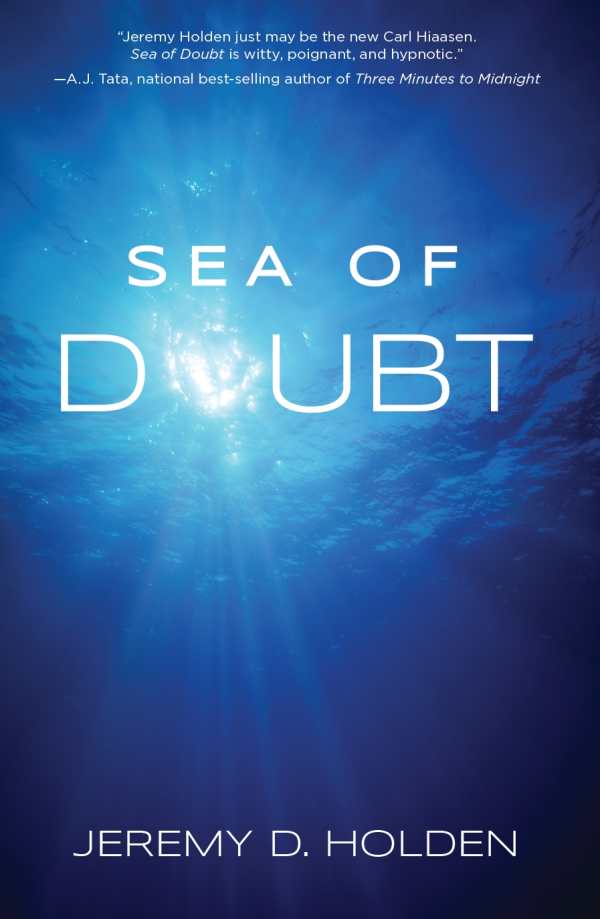Sea of Doubt
The Greatest Story Ever Sold
A web of conflict, both internal and external, is addressed in this intelligent and imaginative narrative.
In Jeremy D. Holden’s Sea of Doubt, the Second Coming requires a public relations campaign, one making certain the Messiah goes viral on social media.
Alfredo Baptiste is a refugee, a man who saw his father and brother killed during the escape from Castro’s Cuba. Decades later he’s a secretive billionaire with a cult-like image based on his success in building the family rum business into BAPTIST, a giant US conglomerate. Recently, in one of Rio de Janeiro’s squalid shantytown favelas, Baptiste has discovered a beautiful young man named Sebastian. Sebastian is mute, but he has learned English quickly and taken up texting and Twitter. All who meet Sebastian are struck by a spiritual aura and otherworldly presence.
Mal Thomas was part of a triumvirate that made the small French advertising firm CREATIF into a Madison Avenue powerhouse, mostly by driving Baptiste’s corporations to the top of the markets. Baptiste summons Thomas and his team and informs them that Sebastian is the Messiah returned. Baptiste wants Thomas’s crew to formulate a plan announcing Sebastian’s presence on Earth as the Second Coming.
Part farce, part allegory, the novel is framed around not only its unique premise but also its powerful characterizations. Sebastian can be seen as bland or as a blank slate onto which others project their spiritual answers. Baptiste is broadly sketched as a Howard Hughes–Warren Buffett–Bill Gates amalgam who weaves through the narrative to spark a twist at the novel’s conclusion.
The story’s heart is its narrator, Mal Thomas (born John Malachi Thomas, “Malachi” meaning “chosen messenger”). His approach to Sebastian’s claim is meant to mirror Everyman. Thomas is a wonderfully nuanced character: deeply in love with his wife, self-aware, agnostic but spiritual. As narrator, it’s his voice—sardonic, self-deprecating, thoroughly British—that lends authenticity to the story. His cynicism cracks when he begins to hear a voice that identifies itself as Rahim. Again, this is a religious reference, for Rahim is one of the names of Allah. Conversely, the mute Sebastian is a less realistic character, seemingly less invested in narrative.
More comic relief is provided by Thomas’s foulmouthed onetime creative cohort, Delilah (another Biblical reference). The initial antagonist in this theater of the absurd is Thomas’s longtime business partner, Oliver Melville Grouse, described as “Louis Winthorpe III in Trading Places.” Grouse cheated Thomas out of his hard-earned place at CREATIF; the incident remains an open wound for Thomas. Grouse’s initials, OMG (Oh, my God), are fitting considering that Thomas’s campaign to introduce the Second Coming will begin with social media rumors meant to go viral.
The story moves along quickly. In fact, the intriguing premise could be expanded, especially after Thomas decides to accept the job of announcing the Second Coming and persuades his coworkers to join him. A web of conflict, both internal and external, is addressed in this intelligent and imaginative narrative.
Reviewed by
Gary Presley
Disclosure: This article is not an endorsement, but a review. The publisher of this book provided free copies of the book and paid a small fee to have their book reviewed by a professional reviewer. Foreword Reviews and Clarion Reviews make no guarantee that the publisher will receive a positive review. Foreword Magazine, Inc. is disclosing this in accordance with the Federal Trade Commission’s 16 CFR, Part 255.

